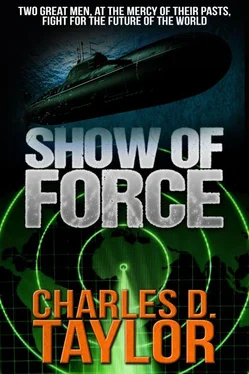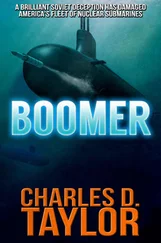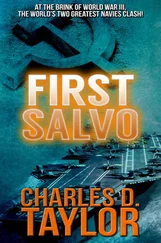As quietly as six men could move through the remains of a pulverized building, they eased their way onto a pile of stone. Kupinsky used his binoculars to check activity behind the lines, while Gorenko and his men moved to one side to protect their post from the street. Less than thirty seconds after they had taken their positions, a German reconnaissance squad inched cautiously down the street in their direction. Gorenko communicated with his men by making hand signs for an ambush.
Looking over his shoulder, Kupinsky saw what was coming. He, too, used hand signals and his men began to move silently. But before they got there, the others opened fire. Shouts and screams, combined with the fire of automatic weapons, shattered the air. The surprised Germans had little chance to return fire. It was over almost before it began, except for the second squad of Germans following the first.
Gorenko didn't see them as he and his men jumped down from their position to locate a survivor. The second German group opened fire on them immediately, hitting one of his men. He and the other ducked behind the remains of a wall that had toppled into the street. The Germans had divided their group and, while one held down the two Russians behind the rubble, the others circled, not knowing Kupinsky was easing around behind them.
And then, from his right, Gorenko saw that the Germans had trapped them almost at the same time that they opened fire. The initial bursts killed the man beside him. He turned to fire, and found his gun jammed. The closest German came at him with his bayonet, deciding quickly that he had an opportunity to save ammunition. Gorenko rose to a squatting position, slipping as he tried to get to his feet.
Then, Kupinsky, bellowing as he ran, fired at the Germans. Two behind fell, but the one with the bayonet hesitated only for a moment when he was hit. Then he continued to chase the stumbling Gorenko. As he rushed, pointing the bayonet at Gorenko's chest, Kupinsky was there, jumping over the sprawled figure of his friend and impaling the German on his own bayonet, then firing one more round to make sure the man was dead.
"Are you hit?" Kupinsky asked, bending over the now-kneeling Navy officer.
"No, I am fine," he replied. "Only my pride is damaged, but it is better to be alive." He stood up, looking directly into the eyes of the man who had saved him. "I owe you something that is not easy to repay. I made a mistake and you saved me." He extended his hand in simple gratitude.
He never forgot the stark look on the other man's face. "No, my friend, you owe me nothing except perhaps to try to keep me alive also. I, too, want to return to my family after this is over." He smiled at Gorenko and turned away, giving instructions to his men, who had salvaged a wounded German.
They returned silently to their basement hovel, leaving their prisoner with Intelligence. They found lukewarm tea left by some officers now sleeping in another corner. Leaning against the wall, legs stretched out in the dirt and dust, Gorenko stared at his hands. They were shaking, the one that held the tea less so because it had something to grasp. He put the tea down, folding his hands to still them. Unable to calm himself, he shut his eyes and said, "I have fought both at sea and on land for almost two years and have never come so close to death, that I know of. Usually, I was behind the hand-to-hand fighting, and I never saw the people I killed or those who tried to kill me. But today, I saw that man's eyes. He wanted to kill me so badly, and I had no idea why he felt that way. Perhaps it comes with command, or the fact that the Navy does not see the people we fight at sea as human beings.
He looked over at Kupinsky, who said nothing. He went OH. "I have organized and commanded a sailor's army for all of this time, when our ships were of little value to the homeland. We do not call ourselves Marines because we expect to be back to our ships so quickly. We were back to them once, after Odessa, when we were part of the Azov Flotilla. Then came Sebastopol. And I fought again with my men there, through the winter." He paused, separating his hands to pick up the tea. "We fought their tanks in the streets. My men threw themselves under those tanks, with their last grenades, so that they would save one city block. And yet, I never came face to face with the men who wanted to kill me. And today, if you had not been behind me, I would have seen him do it." He looked over at the other man. "When this is over, I shall go back to my ships, perhaps. But I want very much to do something for you. I feel inside that I must."
Neither man spoke, nor did they look at each other. Finally, Kupinsky reached over, placing his hand on the other's arm. "My friend, there is almost nothing we can do for each other in this hellhole, except try to survive. If we make it, then we are indeed lucky. What you can do for me can only be done if I die, and I think I have as good a chance as anyone else to die.
"I have a family in Leninsk. Perhaps you have never heard of it?"
Gorenko shook his head.
"It's only about forty kilometers to the east of here on the railroad. I have a small house, if the Germans have not bombed it. And I have a wife and a son, if they have not been killed in the air raids. If they have tried to write me, I have no idea. Mail hardly ever Gome's to Stalingrad, and they will not risk soldiers to carry mail. I have tried to write to them whenever possible to let them know the husband and father is still alive. Perhaps they have gotten some of the letters, perhaps not. As you know, there has been no mail for two weeks, because of the planning for the offensive."
He stopped for a second to light another evil-smelling cigarette, then continued. "My boy, Alex, is ten years old." He looked at Gorenko and smiled. "He is a good boy. Very smart. Perhaps he will grow up to be a sailor like you, instead of an infantryman like me. Then, he won't have to look into the eyes of the people he kills, if there are more people who invade our homeland," he added as an afterthought. "If I am killed, will you go to Leninsk? Find my family, if they are alive? See what you can do for them. I think if we are successful in our offensive, then we won't have to worry about the Germans again. If they take this city and cross the river, then we are lost. I will then try to get to them. But, if something happens to me, will you go to them? Tell my son we fought together against the Germans and that you and his father were friends. I don't want him to forget his father. Tell him why we are ready to fight to the last man. His mother understands only that we have been invaded, but not why we have to stand together." He smiled at Gorenko. "Would you do that for me?"
"We will stay together, my friend, the soldier and the sailor, and we will talk about this on cold nights during the winter when we are old men at our dachas. But, yes, I will go to your family if something happens to you, if that will make you happy."
The following morning, November 19, Georgi Kupinsky was one of the first to die leading his men at Mamai Hill. Pietr Gorenko buried the body under a pile of bricks and mortar himself, so that it wouldn't be added to the growing stacks of dead, frozen in horribly grotesque positions.
Admiral Gorenko turned from the window. So long ago, he thought. I haven't seen death staring at me since then, yet now I'm sending Georgi's son, my son, in that direction. And there are no longer invaders in the homeland as we feared then. Now, they are thousands of miles away, yet only minutes from invasion if they desire.
He became aware of what had jarred his thoughts. "Come," he called in the direction of the door, caring little how long this next intruder had been patiently waiting.
This time it was not an aide, but one of the many Captains First Rank on his staff. The man was still in his bridge coat, which carried water droplets of melted snow from the outside. He inclined his head slightly in greeting, removing his hat. "Admiral, I have just come from the American Embassy. Admiral Collier came out when he saw me. He wishes to speak with you immediately. As you know, they have no outside communications."
Читать дальше












